#I have decided to screw everything and mostly focus on my art journey this year
Explore tagged Tumblr posts
Text
I'm thinking about doing an art challenge for myself in 2025. As a way of improvement and as a way to support TDP‚ like posting tdp fan art bi-weekly as countdown to Arc 3 anouncement or something. Anyone can join the idea if they want but how should I call it? TDP art countdown? Sounds boring and generic doesn't it
Any ideas?
#I have decided to screw everything and mostly focus on my art journey this year#so since im going back to my main art job soon#this will keep me motivated#lets go boys#the dragon prince#give us the saga#continue the saga#I wish it could be weekly but thats too much
13 notes
·
View notes
Text
I’ve decided I’m taking the direction of this project into my own hands and analyze the main cast of Persona 5. I’ve decided to do this as Persona 5 has a track record of being extremely hit or miss with it’s characters. While this is a problem with the entire series, never has it been this even with well written and poorly written characters. So without further ado, let’s get started!
Akira Kurusu/Ren Amamiya/Joker
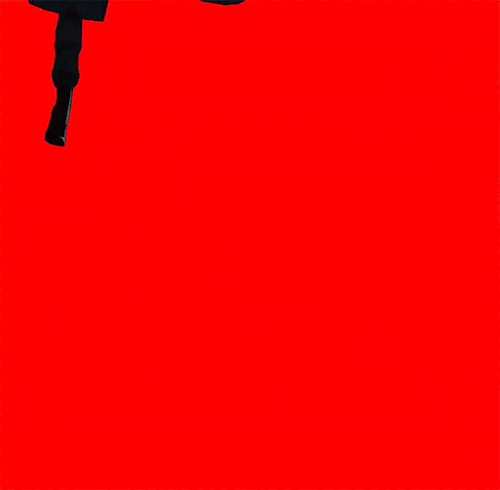
So, this isn’t the best lead we could have, honestly. It’s inherently difficult to discuss Akira’s character, because, well…
He’s not.
As true as he is to his fellow Persona protagonists, he doesn’t actually have a personality to discuss and dissect. We could go off the dialogue choices the player is given, yeah, but there’s just too many variables to be able to settle with one defining personality.
On the other hand, Akira’s personas are actually a nice little nugget of fridge brilliance. Considering that Akira has what the game calls the ability of the wild card, he can wield multiple personas, ranging to about 210 in total. In a way, this is genius. Because of the inherently customizable format of the personas through fusion, no two personas made by different players would be the exact same, reflecting how no two Joker’s will be the same.
I mean unless you’re the type to make an invincible Satanael but c’mon, you’re better than that. Ryuji Sakamoto
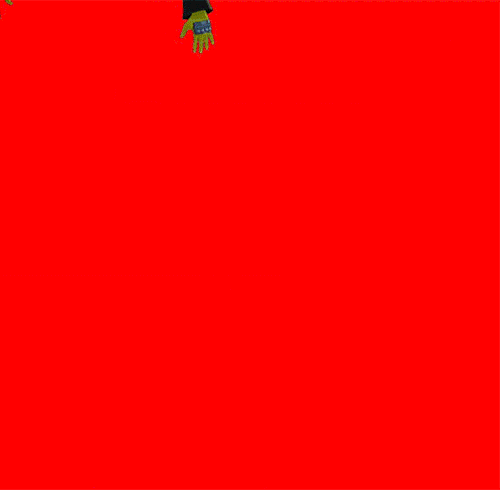
Ryuji establishes a trend present with a lot of characters in the early game seem to suffer from, which is backpedaling on their characters arcs not long after they’re established. Although, Ryuji himself works with said trend… strangely. He doesn’t exactly do said backpedaling because there wasn’t actually anything to backpedal from. He storms in, yells about how much he hates the first boss of the game and storms back out until he becomes a party member. The only actual ‘development’ he gets is to learn to stop giving a shit if the outside world views him as a delinquent.
Which just…Isn’t good enough?
That’s not to say Ryuji isn’t a good character, save for one arc, he serves as a good way to lighten the mood when necessary and serves well as the protagonists best friend, but other than that, there isn’t much to him. Ann Takamaki
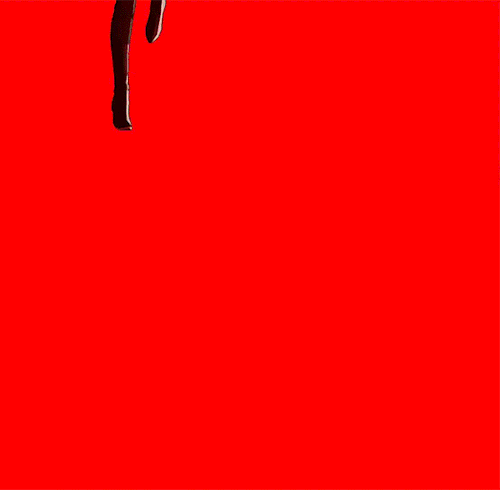
Ann falls the worst for the pitfall I was talking about when going over Ryuji. The entire first arc of the game is about her and her detestment for just being seen as a sexual object, which would be a really good direction for her character to go, especially since the rejection on an older man’s advances resulted in the sexual assault and suicide attempt of her best friend, so clearly it’s not something she’d tolerate... but at the end of the day she serves as the game’s main source of fanservice, which….
Well, it sends mixed messages, no?
Not to mention, Ann’s Persona Carmen is often depicted as a femme fatale who would seduce men and then scrap them to the side when she had been bored with them. Again, mixed messages are all abound with Ann.
Yusuke Kitagawa

Oh, good, finally, someone I can say good things about. The best word that could be used to describe Yusuke is… Interesting. I feel like the best way to describe him as a person would always being about five steps out of step. Still, no matter how strange his outward behaviour is, he dedicates himself to his craft of art pretty much no matter what.
His entire in-game confidant is about his art being criticized by a professional critic and his journey to find out what exactly he needs for inspiration to improve it. This consists of mistaking a brother and sister for a romantic couple and demanding to draw them, and ordering the protagonist to strip in church, among other things. Of course, this isn’t even mentioning his place in the actual story of the game.
Y’know, like, the required stuff.
You encounter Yusuke when investigating the rumors of an artist who uses his artist’s work for his own gain, however he chooses to deny this whenever it’s brought up during the arc due to said artist raising him like his own son since his mother died when he was a baby, however his trust in his mentor and father figure becomes crushed when it’s revealed he simply stood by and watched Yusuke’s mother die due to a seizure. This has lead to many people speculating why Yusuke was taken in in the first place, considering he couldn’t validate his artistic talents to warrant staying around, but I personally feel better off not knowing. After all, the point was to make it so that Yusuke would have no reason to believe in the Phantom Thieves ideals until his psyche had pushed to form his Persona and join them himself. Makoto Niijima

To put things lightly, Makoto is… Complicated, and not in a good way. The biggest problem Makoto has is that it feels like they wanted to write like, two different characters, but the director couldn’t decide which one they wanted to do and just said ‘ehhhh… do ‘em both?’.
She’s either a stuffy mom friend Student Council President, to badass biker chick strategist, but they didn’t blend it together in the way they wanted (at the very least, I hope it didn’t). On the other hand, people seem to deem her as Best Girl because she’s kinda smart and it’s implied she has an abusive homelife with her older sister; something that is touched on once and never again.
Of course, they could’ve fixed this with her confidant, maybe give more insight into her hobbies, or maybe her relationship with her sister, but uhh….But no, though.
Her confidant starts with her talking about her father who worked in the police force and then proceeded to die, because we needed less fathers in this game, clearly. But she also talked about how much of an inspiration her father was to her, which, is honestly really cool.
Except then it delays itself after rank one with Makoto’s first ever actual friend, because screw the Phantom Thieves, I guess, and it goes on about how she, who is genuinely just unpleasant, is dating a man from a host club, which Makoto believes is super shady, it is, but that isn’t the point, the point is this goes on for seven whole ranks. I can’t fathom why they thought this was a good idea, but ranks 1, 9 and 10 are the only ones where Makoto is the actual focus. She had the opportunity to be really good, but they just did not care. There’s more I could say about her incorporation into the plot, but I think I’ll detail it more in Akechi’s section. Futaba Sakura
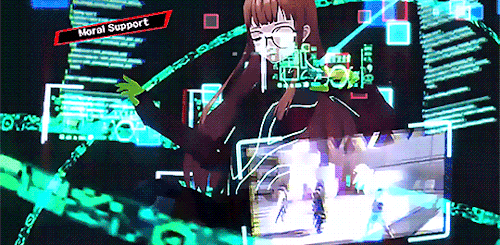
Futaba actually gets to hold the position of the best written Phantom Thief we got, which is probably mostly because we get a good look inside her head. Unlike most dungeons, or rather, palaces, where you’re attempting to change the heart of some foul scum of society, you’re changing the heart of a girl so she won’t kill herself.
It’s established that for the past two years or so, Futaba had been struck deep to her core with guilt and regret after her mother had thrown herself into traffic, presumably in an act of suicide. She had been blamed from every adult that she was the reason that her mother, Wakaba, did what she did, so ever since she had locked herself up in her adoptive father’s basement, that is, until she learns that the suicide note she had been presented with way back when was a simple forgery, and her death was, as it turns out, a murder. This is what persuades her to join the Phantom Thieves, to find out about the people responsible for her mother’s death and get the revenge she deserves.
Not to mention, Futaba’s confidant is primarily about her trying to get her shit together, which is honestly far beyond her fellow Phantom Thieves. Her goal within her confidant is to try to get better about the outside world again, using a method that she used to do with her mother, promise lists. While she isn’t able to complete it, as part of her still feels uncomfortable out and about when Joker isn’t around, she still makes an honest effort to do everything else, even helping out an old friend of hers from an unhealthy situation with her family.
Overall, Futaba is just, real damn good. Haru Okumura
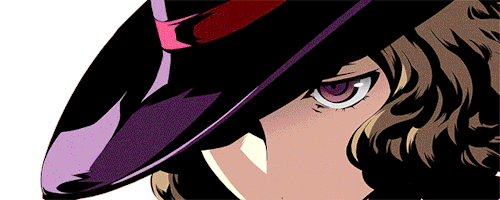
Haru can also be described as complicated, but not in the same way as Makoto was. The main problem that Haru has in the main story is that, well, she’s barely in it. She’s only introduced in September-October, and the last playable month in the game is December, so as a result, she barely has any required screentime with the player. The most we get is her desire to be seen as more as an object to be married off by her father, but other than that, not much.
In exchange, however, Haru has one of the best confidants in the game. After her father dies, she’s left in charge of an entire company, an entire company worth millions of dollars, so as is expected, many other higher ups attempt to be in good graces just to be able to essentially run the place themselves. Haru mentions repeatedly to the player that she doesn’t really want either outcome the situation could have, simply preferring to look after her own garden and open up a small cafe, not unlike her grandfather before her.
It’s nothing super deep or complicated, but it knows what it wants to do, it has focus. Not to mention Haru herself has a rather calming vibe about her.
Goro Akechi

Oh boy.
I could keep this short and brief by simply saying ‘Goro can’t Akechi a break’ but, we aren’t here for short and brief, are we?
While Goro only joins the party for one dungeon near the end of the game, he’s present most of the way through, behaving mostly as an opposing force to the Phantom Thieves, believing they should be imprisoned for their crimes, or, as it turns out, ‘killing’ their leader works too.
Although, as it turns out, Goro needed to shuffle his way into the trauma conga line somehow, and boy oh boy, does he take the crown for it. Being a bastard child in Japan is a big no-no, but however, this is what he just so happened to be, which is already a setback. This was only to be followed up with his mother killing herself when he was young, which resulted in him being passed around from foster home to foster home for just about the rest of his life until he could live on his own, eventually culminating in discovering the powers of his Persona far earlier than the rest of the cast. This leads to him being taken in by his scumbag of a biological father to serve as a pawn for his plans to become a political power, using his power to assassinate any… problematic people in the way, including but not limited to the previously mentioned Wakaba Isshiki. All the while, Goro simply doing his best to be the best he can be, impressing and surpassing all of his peers, until he is killed and presumably forgotten, considering that he’s never brought up again afterward.
To bring up what I was going to talk about in question of Makoto and Goro’s writing is that many people come to the consensus that they should have switched when they joined the party, as not only would the target at the time make more sense for either to be involved in, (An Ace Detective going after a mafia boss, a student council president worried about the state of her sister,) but it’s eventually revealed that Goro is, in fact, a traitor amongst your party. Having him join in the third dungeon, rather than the sixth, not only would this make the player less suspicious of him, but also make his claims of having a Persona for ‘a couple of months’ more believable.
Simply put, Goro Akechi is rather well written, but the fact that he has blood on his hands results in the fandom discarding him to the wayside so hard that even Akechi cosplayers had to suffer verbal abuse and harassment at conventions due to their cosplay choice.
While people can claim what they want, overall, Goro was dealt a shitty lot in life, and he even lampshades this himself, by saying that if he and Joker had met just a few years earlier, things would have been different.
#I don't have a good way of justifying this#Uh#Atlus is my favourite company#Atlus made Persona 5#bam#perfect
1 note
·
View note
Text
MWSA Interview with Bill Riley
Date of interview: 27 October 2019 Bill Riley is a writer and retired US Air Force lieutenant colonel with interests in space exploration, coffee roasting, global communication, intelligence activities, and ancient ruins. Bill was an intelligence analyst during the Cold War. Later, he specialized in strategy and communications. During his career, he’s worked with intelligence and special operations professionals from every service, virtually every intelligence agency, and several friendly foreign governments. Bill’s deployments took him through combat zones across the Middle East where he played significant roles in Kuwait and Iraq, supported joint coalition operations, and helped nations rebuild after wars. He was the first US electronic warfare officer in Iraq for Operation Iraqi Freedom, he led the air force’s largest network operations and security center, and he was the first cyberspace operations officer to receive the Air Force Combat Action Medal. He holds degrees in literature, public administration, and strategic leadership, and he is a graduate of Air Command and Staff College and the Air Force Space Command VIGILANT LOOK program. Bill lives in Idaho, just outside Boise, with his wife and two sons. Find him at billrileyauthor.com Look for him on Facebook, Instagram, and Twitter at billrileyauthor
Interview
MWSA: How has MWSA helped your writing and/or marketing skills? Bill Riley: I've been a member for less than a year, and MWSA has already directly helped me in two ways. The biggest is networking. In a short time, I've had the opportunity to meet many writers willing to answer my questions and discuss both the art of writing and the struggle to make writing a career. Very well established authors have been generous with their time and advice, and both new and experienced writers have shared valuable tools, perspectives, and approaches with me. The second benefit has been feedback and recognition. These go hand-in-hand, and the review process MWSA offers is phenomenal. The volunteers who conduct book reviews are professional, constructively critical, and provide notes that provide feedback on what worked and didn't. This dovetails into the MWSA Awards program, which represents the genre of Military Writing in the United States. It judges each submission against professional literary criteria, not against the books submitted in a given year. This means we compete against the best standards of writing and storytelling, not each other. Baghdaddy won the 2019 MWSA Founders Medal and Gold Medal for Memoir, and I was blown away. It was exciting and humbling. As a writer, it was a moment I'll never forget. Now, being able to market Baghdaddy as an award-winning author has opened up speaking and media gigs that were difficult to get before. So please submit your work, the feedback is excellent, and you never know what'll happen. MWSA: Baghdaddy is an intensely personal sharing of your life’s journey. At what point and how did you decide it needed to be written?
Bill Riley: I witnessed the effects of Saddam’s rape of Kuwait and his failure to honor the terms of his surrender. Later, I was stationed in Iraq and experienced the unique challenges of trying to rebuild that country while some of its people were trying to kill me. My father tried to prepare me for the worst that life could throw at me. He taught me hard lessons that often hurt, and I resented them. After he passed away, I tried to put things in perspective. I realized that there wasn’t a lot of difference between the skills I needed to survive my childhood, be a father, and go to war. I met some amazing people along the way, and connecting those dots brought me to Baghdaddy. MWSA: What attracted you to intelligence and national security? Bill Riley: I wish I could say I had a noble purpose or a higher calling, but I didn’t. I was the stereotypical enlistee, in a bad situation without other good options, and the air force offered me a way out, an opportunity to prove myself, and a fresh start. Funny story: I entered the air force without a guaranteed job. I was an “open general” recruit, which is another name for “whatever the air force needs most.” A.k.a my recruiter Jedi mind tricked me into meeting his quota. Halfway through Basic, our military training instructor lined us up and said, “I have to send five volunteers to the new special ops pre-qualification course. Who thinks they have what it takes?” You’d think everyone would want in, but no. He got four volunteers, and I was “voluntold” to be the fifth. I was annoyed. It was just one more thing I had to do. But I said, “YES, SERGEANT,” on cue. I figured it would be obvious I wasn’t into it, nature would take its course, and I’d be out. The thing was, it wasn’t bad. Yeah, it was chaotic and exhausting, but there was no yelling, I ran and swam, and avoided the most tedious aspects of basic training. Our ability to observe and improvise was tested, and we wrote short essays to answer unanswerable morality questions as our group got smaller and smaller. When there were five of us left, we were given our final task. Dive in the water, reach the other side of the pool, pick up a mask from the bottom of the deep end, clear it, put it on, and swim back to where we started. All underwater, all in one breath. Problem was, when I’d almost gotten to my mask, some asshole with a padded stick hit me and knocked the mask away. I grabbed it, but another stick knocked me in the head, and I let go. I was running out of air, but surface and you lose, and I was pissed. I swam to the wall just above the mask, and the sticks came at me again. This time I grabbed both and kicked off the wall as hard as I could. One stick came free in my hand, and there was a big splash. I grabbed my mask, cleared and donned it, and swam to the finish line. When I broke the surface to gasp for air, a hand the size of a ham grabbed my head and hauled me out of the pool. It was a huge, unhappy sergeant in soaking wet fatigues. I figured I’d screwed up. I just hoped they’d let me finish Basic. They congratulated me. I finished first in that class and was offered a spec ops class slot. But there were only two slots, and there were three of us. In the pit of my stomach I knew I wasn't the right man for the job. I didn't want it like the other candidates did, and I figured their passion had to mean something. I declined the Pararescue slot I was offered, got yelled at by a major, for what seemed like a long time, then the big sergeant I dunked in the pool came in. He told the major that while he questioned my decision-making skills for not going in the program, I had integrity and grit and he recommended me for an intelligence job that just felt right. No one had ever told me I had grit or integrity before. I stayed because there’s a sense of community in the military that, for me, was like family. MWSA: Your book’s cover art elicits strong reactions. What were your thoughts behind it? Bill Riley: The Baghdaddy cover is polarizing, and I love it. I wanted it to cut to the heart of my story, and with one glance it does. I wish we lived in a world where there weren’t child soldiers, but we do, and they’re a part of this story. The art also captures the warlike aspects of my upbringing, and it feels personal. My father once said, “One definition of adult is surviving your childhood,” and I never forgot it. Each story element meets on this cover. You know the moment you pick it up. MWSA: Baghdaddy provides a firsthand view of war; what are the most common misconceptions held by many Americans? Bill Riley: We see war mostly in snapshots, and not everything gets the coverage or the attention or focus it deserves. There’s been a terrible war in Yemen for years, but the media barely covers it. The same was true of the atrocities of Saddam’s occupation of Kuwait and the campaign of rape and terror employed by Slobodan Milošević during the Bosnian War. Few were interested in investigating and reporting until the world couldn’t look away anymore. The first time I was in Iraq was just after President Bush declared victory. We absolutely met and exceeded the first phase objectives of the war, but even at the highest levels of power, there were misconceptions over what “victory” meant, and unfortunately, an agenda often drives what gets reported and what the public sees. I was with an army signals unit on the outskirts of Karbala, about fifty-five miles southwest of Baghdad. There was a friendly village just off the major supply route, and we encountered a news crew at the burnt and twisted remains of a blown-up semi-tractor-trailer. People from the village were rummaging through the blast field, looking for salvageable spoils. We waved, the Iraqis waved back, and the reporters were busy setting up their shot. We pulled over, and I went to touch base with the news crew just as they were assembling a group of men and boys with slung Kalashnikov rifles in front of the still-smoking vehicle for a picture. Back then, if a supply truck fell out of a convoy along the route, the driver detonated the vehicle and cargo so it wouldn’t fall into enemy hands. The vehicle in front of me, and the reporters was one of those. We knew it, they knew it. The title that ran on the picture in a scathing news story was, 'Insurgents Destroy Military Supplies.' It was a good picture, and insurgents did destroy military supplies, just not that time. If you look closely at the picture, you can see all the boys smiling for the camera. Don't get me wrong, there is still great reporting. Unfortunately, we've also reached a point of manufactured and skewed news saturation. The difficulty in separating the truth from the lies has, more than anything, led to misconceptions. MWSA: You're currently writing a YA series. What can you share about the series, and does it have a connection at all to Baghdaddy? Bill Riley: Absolutely, it does. Thank's for asking about this, I just finished the first book in my new Cypher series. In it, I draw on my military background and time in secret organizations, and while I was raising boys when I was often away doing things I couldn’t talk about. I’ll take readers to places they haven’t seen before in Young Adult Fiction, and it will be a wild and surprisingly moving ride. The first book is called Ashur’s Tears. In it, near-future technology collides with magic in a vibrant world where the government has a lot to hide. An apocalypse-class artifact has been stolen, powerful factions have emerged, and demons are poised to invade the world if a disgraced temple guardian and the three Cypher children can’t find their father and stop it. I love this story, and I can't wait to share it, probably late 2020/early 2021. You can check out billrileyauthor.com for updates and events.
0 notes